How can I lower my heart rate?
To lower your heart rate, you can do the following:
1, exercise, the implementation of effective and simple exercise can significantly reduce the heart rate, most of the athletes heart rate is more on the slow side.
2. Stay hydrated. When the body is dehydrated, the heart must stabilize blood flow with a rapid heart rate, so be sure to drink plenty of water.
3. Limit the intake of stimulants such as caffeine and nicotine, such as tea, coffee, smoking and so on.
4. Limit alcohol intake, as alcohol itself can increase the heart rate.
5, healthy, balanced diet, eat more rich in fruits and vegetables, lean meat protein, soy products food can improve the health of the heart, as well as the overall health.
6, to have enough sleep, long-term lack of sleep will bring the heart very big pressure, resulting in increased heart rate.
7. Maintain a healthy weight, as extra weight increases the pressure on the heart, which can cause an increased heart rate.
8. Reduce or address a large number of sources of chronic stress, such as work, family, financial burdens, etc.
9. Seek reasonable counseling or psychological services.
10, to practice some relaxation techniques, enhance self-awareness and some positive thinking activities, you can do some meditation, yoga and so on to relax the body and mind.
11, if through the above methods still can not reduce the heart rate, we can take medication. Commonly used drugs to reduce heart rate are betalactam, bisoprolol, propranolol, amiodarone and other drugs can reduce heart rate.
(I'm Luo Min, chief physician of a Grade 3A hospital, with more than 30 years of clinical experience in the first line of work of the "old" doctors, my efforts only to harvest everyone's approval, if my answer can help you, I hope you can like, attention, if you have any questions, you can comment or private message me, I will try to help everyone!)

I'll answer this question from first-hand experience: the
In the summer of 2014, I felt a bit of panic, self-tested my heart rate at 105 beats per minute, and then asked a friend who is a doctor to suggest a long-term medication intervention. After thinking about it, I decided not to take medication and to start with an exercise intervention.
Phase I: 1 year of long-distance walking
Walked to and from work, a distance of 4 kilometers, twice a day, 50 minutes each way. Over the course of a year the weight dropped from 90 kilograms to 80 kilograms and the heart rate dropped to about 80 beats per minute.
Phase II: 4 years of short-distance walking
As a result of moving closer to the unit, still insisting on walking to and from work, the distance of two kilometers in 20 minutes, two trips a day, insisted on four years, the weight is still maintained at 80 kilograms, the heart rate dropped to about 75 times per minute.
Phase III: Walking + Rope Skipping for 1 year
The walk continues to be 2 trips per day, 20 minutes each way.
Jump rope 2 times a day, 500 each time at first, then increasing to 1700. It took about 25 minutes. One year down the line the weight dropped to 72 kilograms and the heart rate dropped to about 72 beats per minute.
In summary, the following conclusions were drawn.
1. Exercise can lower your heart rate
2. Lowering your weight can lower your heart rate
Important Notes.
Determine the type and amount of exercise according to your situation.
Please seek medical attention for special cases.
Heart rate is the number of times our heart beats per minute, under normal circumstances, the number of times our heart beats per minute, it should be 60-100 beats per minute, which is our artificially defined standard of normal heart rate, but if we want to lower the heart rate down, or want to control the heart rate, what do we need to do? What are the methods?
First, reduce external stimuli
There are many reasons that can cause an increase in heart rate, but external stimuli are best understood! Emotional stimuli such as joy, anger, sadness, etc., stimuli such as smoking and drinking alcoholic beverages, etc., so reducing external stimuli, reducing emotional changes, reducing smoking and drinking, etc., can lower your heart rate!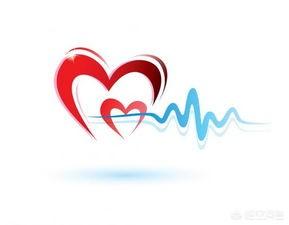
Second, the use of drugs to slow the heart rate
There are many drugs that can slow the heart rate, most of the antiarrhythmic drugs, have the effect of slowing down the heart rate, for example, we commonly used beta blockers, calcium antagonists, sinus node function inhibitors, etc., common such as betalactam, diltiazem, ivabradine, amiodarone, propafenone, etc., they belong to a different antiarrhythmic drugs, but no matter which mechanism of action? All of them can slow down the ventricular rate and thus control the heart rate!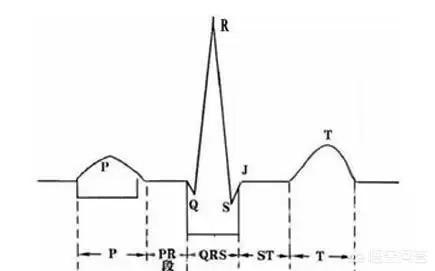
Third, treating the primary cause and slowing the ventricular rate
There are many heart rate increases that are caused by primary diseases, such as hyperthyroidism, infections, fever, etc. Most diseases can almost always cause an increase in the heart rate, and when the primary disease is treated, then the heart rate can be effectively controlled!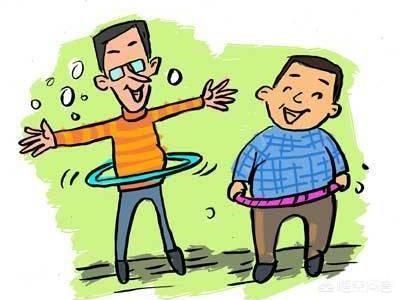
Fourth, weight control
Is there a relationship between weight and heart rate? Of course, there is a relationship. Given the same conditions, the higher the weight, the faster the heart rate, so controlling your weight can effectively reduce your heart rate!
In fact, most of the heart rate control still needs to be carried out by drugs, and there are many drugs that can control the heart rate! Pro, see what I mean? Follow us to have updated science tweeted to you every day!
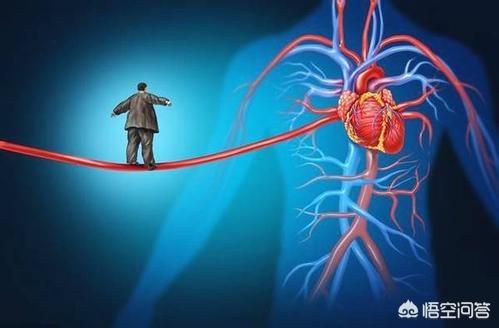
The regular contraction of the heart produces a heartbeat, which pops out blood to supply other organs to perform their normal functions. The heart has its own rhythm, too fast or too slow will have a certain impact on the body, too slow heartbeat will lead to insufficient blood supply to the heart, it is difficult to supply the needs of other organs; heartbeat is too fast to increase the load on the heart, will lead to a decline in cardiac function over time. Today, we will focus on how to control fast heartbeat for patients.
If the rapid heartbeat occurs after strenuous physical labor, eating spicy and stimulating food, or after being shocked or having emotional fluctuations, it is generally physiological, and can be relieved by reasonable rest and emotional stability, and does not need to be treated with medication or other methods.
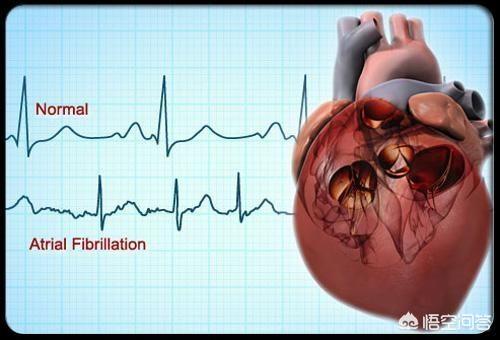
In case of pathologic tachycardia, treatment should be based on the specific cause. For patients with atrial fibrillation, in addition to the use of drugs to control the accident, but also pay attention to with anticoagulant drugs taken together; for atrial premature beats, ventricular premature beats more number of patients, and panic, fatigue and other clinical symptoms can be given β-blocker or calcium channel blocker treatment, if the effect is not obvious can be treated with radiofrequency ablation; for patients suffering from severe malignant arrhythmia, such as ventricular fibrillation, For patients with severe malignant arrhythmias such as ventricular fibrillation, ventricular or supraventricular tachycardia, once found, it should be actively treated to avoid coma and sudden death; for arrhythmias due to hyperthyroidism and anemia, it should be actively treated for the primary cause.

These are some of the commonly used methods to control rapid heart rate. It is believed that the above measures will definitely serve the purpose of good heart rate control while significantly reducing the occurrence of cardiovascular risk events.
Answerer: Xu Xia, M.S., M.A.
Welcome to Life Calling for more useful health knowledge.
I have a fast heart rate, in the hospital the doctor had to give a heart CT to get the heart rate down to over 60 times a minute, told to take betrolox, took the regular dose and it didn't work, added it to the six gas and still the heart rate wouldn't come down, the doctor said the maximum dosage, and in the end it didn't make it. After being discharged from the hospital the heart rate was still over one hundred and twenty, (per minute). It was very difficult to get through the day, and I used abdominal breathing (deep breathing, slowly bring the heart rate down Lei, whenever the heart rate is fast, practice for a while, relax and relax and then relax again Du, deep and slow breathing, and sunk in the lower dantian. No harm to the body, no cost, why not?
The normal range for heart rate is per minute60-100 timesHowever, heart rates in this range generally do not require special intervention, but some people have a slow basal heart rate, and a slightly faster heart rate can cause symptoms such as panic and chest tightness.
A slight increase in heart rate can be achieved byStress relief, better sleep, less coffee, less teaand other methods of intervention.
A lot of people take it when they have a fast heart rate.Quick-acting heart pills, compound danshen drip pills, even nitroglycerin, none of these medicines work well, and some people may also make their heart rate faster after taking nitroglycerin, which is counterproductive. In the absence of a clear respiratory condition, you can try to take nitroglycerin when your heart rate is fast.atenolol (loanword), which lowers the heart rate in a short period of time, but needs to be used under medical supervision.
If the heart rate is fast at the same timeCombined dizziness, weakness, blackness before the eyes, and even a transient loss of consciousnessThe heart rate is already very fast at this point, which is often caused by more serious arrhythmias such as atrial fibrillation and ventricular tachycardia, which need to be diagnosed and treated in the hospital as soon as possible. In addition to taking medication, some arrhythmias can be treated by radiofrequency ablation.
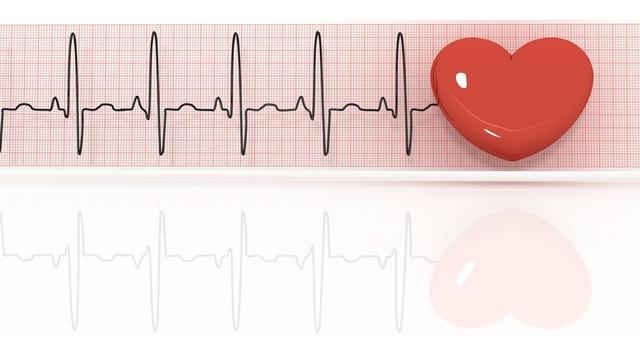
That's really the right question to ask, I'm living proof.
I've had a high heart rate since I was a kid, I've been to the hospital countless times and taken countless medications, and I end up reflexively wanting to throw up at the sight of them, and would rather have them disappear tomorrow than take them again.
The doctor said that exercise would help too, so it kicked off a daily workout pattern:
Join us at 5:45 a.m. for a 45-minute walk.
After breakfast and normal work, recess follows the students in running drills, 5 laps of 200 meters. Recess is divided into two sessions in the morning and two in the afternoon.
In the evening, I simply had a snack and went swimming 🏊🏻 for 30 minutes, three laps of backstroke and three laps of breaststroke respectively.
Swimming and then simply following the yoga teacher's stretching and stretching, which took 40 minutes, the day's workout mission was over.
After sticking with it for a while, my heart rate went from the high 100s to the low 90s, which isn't up to par, but it's working.
In the process of exercise also gave me an unexpected surprise, I lost weight, walked more energetic, and felt more energetic in class. My classmates all said that my teacher has become younger.
I'm going to hang in there and cheer for a good body!
You can stimulate the vagus nerve, for example, by compressing the carotid sinus on one side, or by compressing the eye on the other side to reduce the heart rate. In clinical practice, doctors often use medications such as metoprolol and bisoprolol, ivabradine, etc., to lower the heart rate.
、
How can I lower my heart rate?
More common in real life is an increased heart rate.
Increased heart rate is mainly an increase in heart rate above the basal heart rate, the medical term for this is sinus tachycardia, which is mainly more than 100 heartbeats per minute, and the causes of an increased heart rate can be physiological, cardiac, or non-cardiac.

Non-disease also known as physiologic causes of increased heart rate.
Exercise or activity, especially vigorous exercise or strenuous activity.
People who drink too much alcohol, in addition to smoking, drinking strong tea, and drinking coffee may also experience a rapid heartbeat.
Emotional times.
Nervousness and anxiety, difficulty in relaxing, mental unsteadiness, excessive or inexplicable worrying, in addition to a rapid heartbeat, there can also be chest tightness and shortness of breath feeling breathless.
Rapid heartbeat due to cardiopulmonary disease/
Coronary heart disease angina pectoris myocardial infarction
heart failure
Chronic lung diseases such as chronic obstructive pulmonary disease (COPD), emphysema, and pulmonary heart disease (PHD)
Disease other than cardiopulmonary disease causing/
Fever from various causes
Shock from all causes
hypertensive patient
anemic patient
anoxic patients
hyperthyroidism
Infections with pathogenic microorganisms such as bacteria, viruses, and fungi lead to sepsis.

Drug-induced rapid heartbeat
Drugs such as atropine, scopolamine and belladonna.
How should I heart rate then?
The first thing you have to do is look for etiologic triggers.
The next step is to remove the etiologic triggers.
If physiologic factors are responsible for the rapid heart rate, the following steps can be taken to lower the heart rate.
Maintain a calm state of mind, avoid emotional ups and downs, ensure adequate sleep, avoid stress and anxiety, avoid insomnia, pay attention to the combination of work and rest, regular life, maintain a balanced diet, moderate exercise.
Limit smoking and drinking, try to avoid strong tea, avoid strong coffee, avoid stimulating foods, etc.
If there are no contraindications, keep drinking about 1500 to 2500 ml of water per day, or more if combined with kidney stones and hyperuricemia.
If the rapid heartbeat is caused by a medical condition, the following steps can be taken.
First identify what disease is causing the rapid heartbeat, whether it is an ischemic hypoxic heart lesion, chronic lung disease, etc.
The next step is to aggressively treat cardiopulmonary pathology, treat anemia, hyperthyroidism, infections, correct hypotension, and correct shock while removing predisposing factors.
If symptoms of rapid heart rate persist after removing the predisposing factors and controlling the cause, if not contraindicated, a heart rate lowering medication such as bethanechol can be chosen, which in addition to lowering the heart rate, also reduces oxygen consumption.
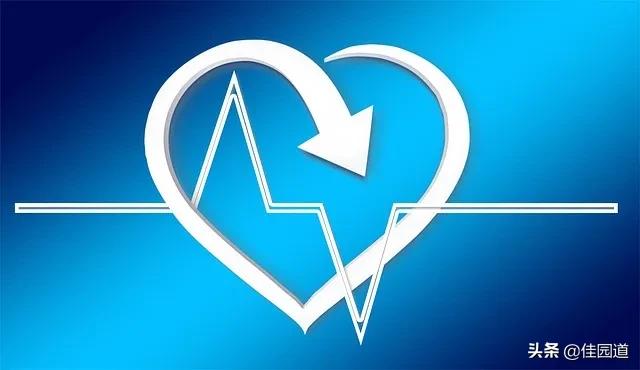
1. There is really no need to take the initiative to lower the heart rate of a normal healthy person, everyone's baseline heart rate is different, there is no need to obsess about the deviation of more than ten times . You can feel comfortable on your own, with no abnormal sensations!
2. How to always palpitations, panic, that really pay attention to it! First of all, go to the hospital to find out the cause of fast heartbeat, the right medicine, detailed consultation with the doctor's advice is best.
3. Always think about how much your heart beats a minute, in the middle of the tension and anxiety, the heart rate is more likely to rise.
4. Teaching you how to lower your heart rate without knowing about each person's life, routine, diet, stress, basal metabolism and basal heart rate, etc., I personally think it's all empty talk!
This question and answer are from the site users, does not represent the position of the site, such as infringement, please contact the administrator to delete.